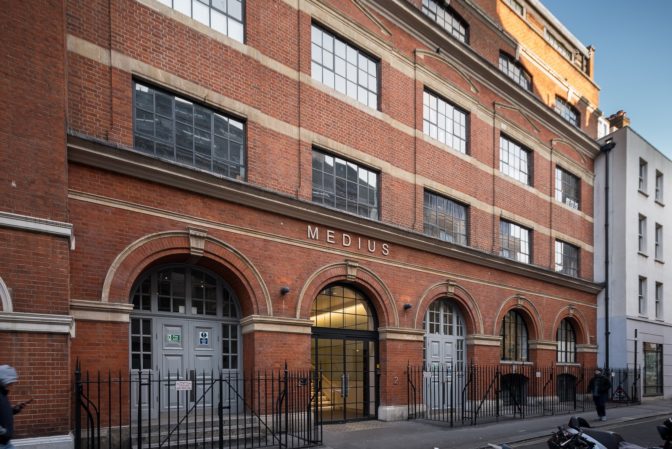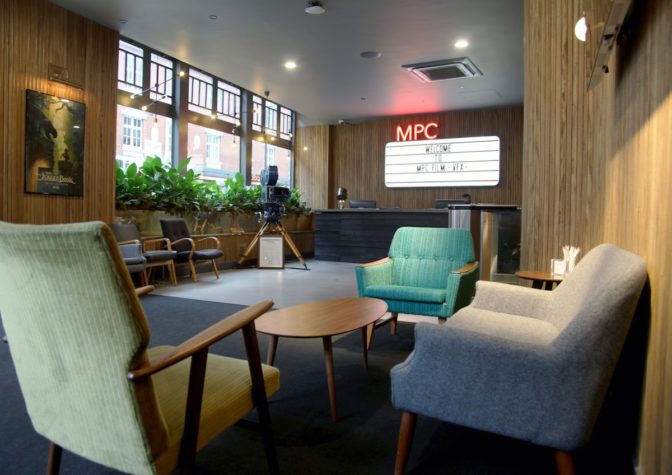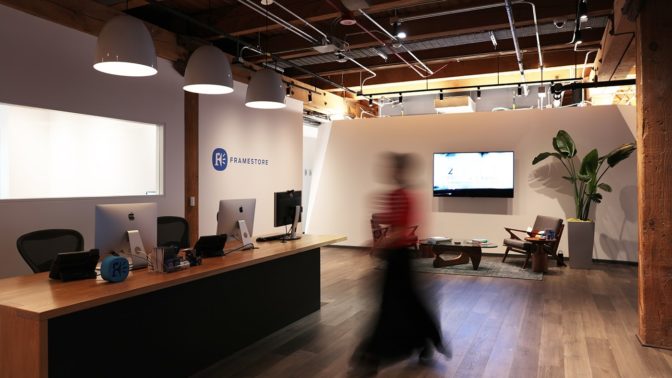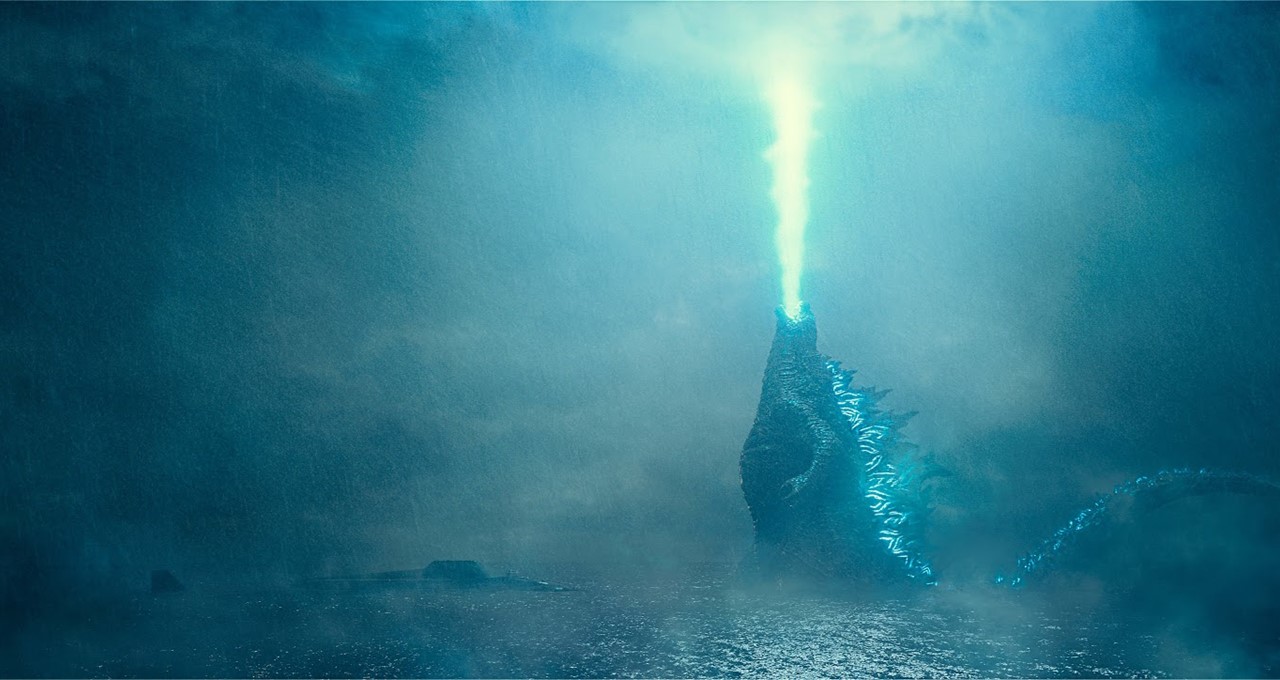Among the companies around the world adjusting to remote work environments are visual effects studios.
They commonly use NVIDIA Quadro-powered high-performance graphics workstations from partners like HP and Dell for tasks such as 3D modeling, animation, lighting, simulation, virtual production, compositing and rendering.
But what happens when these workstations are back at the studio under a desk or locked away in a data center? Cinesite, Framestore, MPC and Technicolor are four VFX studios that have enabled remote workflows to help their artists stay productive while working from home.
Learn how they’ve provided their creatives with the power, performance and security needed to keep productions moving forward.
Cinesite
From offices in Vancouver, Montreal, London, Munich and Berlin, award-winning digital entertainment studio Cinesite creates visual effects and feature animation for film and TV such as Black Widow, The Addams Family, Rocketman and The Witcher.
When coronavirus cases started spreading in Europe, the team at Cinesite quickly looked for ways to keep employees safe while maintaining high productivity.
“At the time, nobody from our studios was working from home,” said Michele Sciolette, CTO at Cinesite. “Very quickly, we needed to find a way to provide our teams at home with the same full set of functionality and graphics horsepower that they had in the studio while maintaining a high level of security.”

With only a few weeks to prepare and deploy a system, there was no time to explore new technologies. Cinesite needed a solution that not only provided security and would allow the team to effectively perform all their daily tasks, but was also cost-effective and minimized the amount of support required for everyone working at home.
The immediate decision was to provide remote access to the workstations back in the studio. This ensured no files would leave Cinesite’s secure network — all production workflows would be based on accessing the artists’ workstations in the office from a remote client.
The final deployment varies slightly for each studio, but, for the most part, they chose HP Remote Graphics Software (RGS), recently renamed to HP ZCentral Remote Boost. This provided excellent results and allowed them to quickly scale up and provide employees access to the workstation power they need. Teradici and NoMachine solutions are also used to good effect.
Cinesite additionally created a secure and scalable VPN infrastructure to support the remote access. With the pressure to get this system deployed fast, Cinesite allowed some employees to use personal computers as a remote access point if it met specific requirements.
In less than three weeks, Cinesite deployed the new system and enabled approximately 1,100 people working from home across its studios.
MPC and Technicolor
Academy Award-winning studio MPC uses cutting-edge technology to help produce films like 1917, The Lion King, The Jungle Book, Ad Astra, and Godzilla vs Kong. With operations distributed globally, MPC and its parent company, Technicolor, wanted to ensure their deployments were consistent across all business units.
“This was not time to go and propose large capital expenditures to solve a problem,” said Sebastian Sylwan, CTO of Film and Episodic VFX at Technicolor. “We had to react very quickly to support the needs of both our artists and our customers.”
Coincidentally, Technicolor was already updating its secure VPN infrastructure, which allowed it to quickly enable a lot more users. MPC also had a robust remote workstation infrastructure on premises, using Teradici’s PCoIP and Leostream.

A review of available options led to a setup based on Teradici’s Cloud Access Connector as a brokering service. The logistics of distributing equipment were worked out and completed just before facilities went into lockdown.
“We already had racks of workstations in our data center using Teradici with zero clients to the artists’ desks,” said Martin Weaver, global systems architect at Technicolor. “Our HP workstations all came with free RGS licenses, and remoting all of this infrastructure happened ridiculously fast.”
The following weeks then saw significant efforts to tweak the settings to allow for the most challenging workflows like 4K reviews and final quality control, as well as specialized solutions for group review and others.
MPC also worked quickly to enable other special cases, like a small virtual production team that needed to use virtual cameras to continue shooting and sync the shots with scenes that were stored in a central repository.
To enable these workflows remotely, a special server setup was created and the team received workstations configured with fully encrypted VPN connections segregated from the internet. In parallel, production teams were in constant contact with studios and clients to validate the proposed solutions. Once the approvals came, the deployment happened very quickly.
In a short amount of time, Technicolor worked collaboratively in a task force involving all business units and was able to securely remote over 3,400 employees.
Framestore
With a team of 3,000 people across the globe, BAFTA- and Oscar-winning creative studio Framestore has worked on recent film and television projects including Avengers: Endgame, No Time to Die and Blade Runner 2049. Framestore also works on advertising and immersive experiences with international brands and clients such as Geico, Jaguar, HBO, Lionsgate Entertainment World, Samsung and Disneyland Resort.
Similar to the other studios, Framestore had very little time to set up and deploy a solution that would help their artists work from home. On the advertising side, the teams were primarily using Teradici with Leostream brokering services to remote into their NVIDIA-powered Dell Precision workstations. To get ready and set up for remote work, the employees just needed to pick up their Teradici hardware and head home.
But on the film side, Framestore first needed to connect with its clients and other studios to receive approval and agree on security guidelines. Then Framestore started rebuilding its VPN servers, renewing certificates, and re-establishing all of the credentials to start with a fresh base.

For extra security and to help ease the transition for employees, Framestore pre-configured routers and zero clients that could easily be plugged in at home. This created a hardware-based VPN that eased artist connectivity, improved network reliability, increased encryption efficiency and provided a higher level of monitoring for the Framestore networks team.
“Our top concern was security and we tackled that first,” said Steve MacPherson, CTO of VFX at Framestore. “Our artists have highly sophisticated graphics workstations in the office, and we needed to ensure that we would meet their high expectations and allow them to remain efficient.”
Framestore also monitored performance across broadband connections by deploying local client routers to each user, and essentially extended the internal Framestore network edge to users’ homes. This allowed the team to troubleshoot issues and perform diagnostics to determine bandwidth thresholds, and tune network performance to provide an enhanced remote working experience for the employees.
Learn more about how NVIDIA solutions like Quadro Virtual Data Center Workstations or Quadro-powered workstations from partners like HP and Dell are helping professionals do their best work remotely.
For more best practices and guidance for working from home for visual effects companies, read this VES Technology Committee document co-authored by Sebastian Sylwan and Michele Sciolette, among others.
Featured image courtesy of MPC. © 2019 WARNER BROS. ENT. ALL RIGHTS RESERVED.
